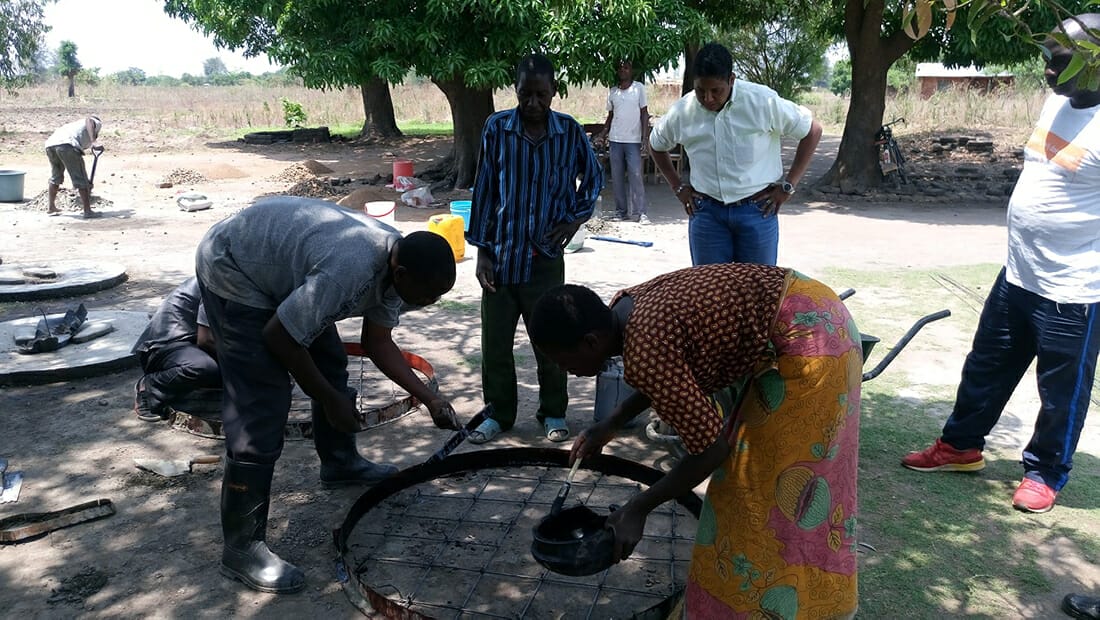News > Blog
PCI Continues Post-Cyclone Support in Malawi
Published 11/06/2019 by Global Communities

When Cyclone Idai first made landfall in March 2019, Malawi had already experienced intense flooding in 15 districts, with the Government of Malawi citing Machinga and Zomba among the most affected. Nearly 87,000 people were displaced, finding refuge in temporary camps at schools and churches without sufficient access to shelter or water, sanitation and hygiene (WASH) facilities.
The floods washed away homes and livestock, destroyed thousands of buildings and community assets, and damaged roads, bridges, public infrastructure, and school and health facilities. Due to the magnitude of destruction, the President of Malawi declared a state of disaster for the hardest-hit areas.
Project Concern International (PCI) partnered with the Office of U.S. Foreign Disaster Assistance (OFDA) to launch the Machinga-Zomba Cyclone Idai (MAZI) Response. The goal of the project is to expand access to clean water, improve hygiene and sanitation, and help prevent the outbreak of water-borne disease among flood-affected households in the two districts.
Damage to the WASH subsector included the destruction of boreholes and piped water supply systems. Although water is available, quality and quantity has been compromised. Water points were contaminated by flood water and thousands of latrines collapsed, which has fueled open defecation. According to the Government of Malawi Flood Response Plan, a total of 42,715 latrines were destroyed in Machinga and 19,000 in Zomba.
Proper hygiene and sanitation methods are often neglected in the aftermath of any natural disaster, further contributing to the risk of diseases. In addition to the risk of water-borne disease, living in overcrowded temporary shelters and multiple families sharing the same home also increases risk of infections like hepatitis A, typhoid, and scabies, while putting additional pressure on the remaining functional WASH infrastructure.
To address these challenges, PCI’s MAZI Response activities include: helping community members construct simple, permanent pit latrines that can withstand adverse weather conditions; promoting proper hygiene and sanitation practices to prevent illness and the spread of water-borne disease; and, rehabilitating and decontaminating water sources in target areas.
To date, PCI’s MAZI Response team has recruited and conducted refresher training for 36 local artisans to cast and install sanitation platforms (SanPlats) for families and communities in need. Training also included topics such as designing latrines for people with physical disabilities and the elderly, appropriate pit latrine siting, management of construction materials, and protecting children and women. PCI registered 14,000 households who need SanPlats to improve their sanitation.
Additionally, PCI’s MAZI Response team recruited 24 WASH promoters to conduct door-to-door visits to the homes of program participants. WASH promoters will be responsible for educating community members on appropriate hygiene and sanitation practices such as handwashing with soap and using tippy-taps. They also will distribute water disinfection supplies and guide families on the selection of latrine sites (i.e., on elevated lands and at adequate distances from water sources, homes and public facilities).




